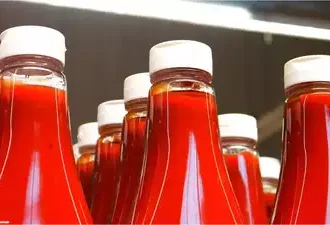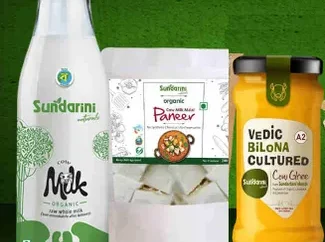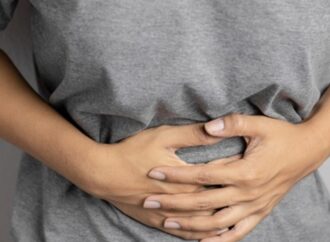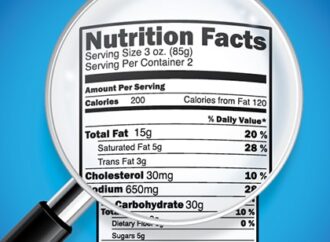Have you ever bought honey products pre-packaged by famous brands such as Dabur, Patanjali, Zandu, Hi-Honey, Apis-Himalaya, Dadav, Hitkari, Indigenous and Society Naturelle?

If you have actually favored these brands, there would be cause for worry as food adulteration investigations done by the Centre for Science and Environment (CSE) based in New Delhi, found that they were actually impure and adulterated. Their findings were confirmed by diagnostic tests done on the same samples by accredited German laboratories.
The researchers found that only three honey brands out of the 13 top brands passed the internationally accepted Nuclear Magnetic Resonance Spectroscopy (NMR) test for honey adulteration.
The only brands which passed the test were Saffola Honey, Sohna Honey by Punjab Markfed, and Nature’s Nectar Honey by the Kejriwal Group.
The scale of adulteration in the ₹3000 crore Indian Honey market is such that out of the 22 branded honey products sampled, 17 were found to be adulterated. These CSE findings were also independently verified by accredited laboratories in India as well as Germany.
The Primary Adulterants in most of these Cases were Synthetic Sugar Syrups Imported from China.
The pre-packaged honey sold by these major brands was adulterated with a modified sugar syrup that could not be detected using any of the quality control checks established in India. This syrup was strategically imported from manufacturers in China who specifically designed it so that it could bypass the mandatory tests in India.
The genesis of this research was the fact that honey prices were unrealistically coming down alongside reports from journalists that honey was not being sourced from honey keepers in India as much as it should be considering that the demand for honey in India was soaring. To be specific, Honey which was priced at ₹160 per kg in 2015 had surprisingly fallen to around ₹60 per kg in 2018.
Further investigation revealed that in the last four years as much as 11,000 metric tonnes of fructose syrup was secretly being imported from China. Nearly 70 percent of these illegal imports originated from Chinese online trading platforms like Alibaba with purported claims that these products would pass all the food adulteration tests done in India. These syrups were made available for bargain prices to importers starting from just ₹53 per kg.

Upon contacting these Chinese companies, they gave assurances that their specially produced syrup could adulterate up to 80 percent of honey and even then, stay undetected in any of the tests mandated by the Indian Government.
The syrup was fraudulently packaged as a “paint pigment” and international shipping was done through Hong Kong to avoid detection and seizure by Indian customs authorities.
Honey adulterated with the Chinese sugar syrup lives up to its advertising claim of being completely undetectable in FSSAI tests even after adulteration of more than 50 percent.
CSE Research Team
Upon deliberate adulteration of pure honey with the syrup, CSE researchers were surprised to find that this adulterated honey cleared all the FSSAI tests. CSE also sent the samples to German laboratories and their conclusions were doubly validated to be true.
What Amit Khurana, program director of CSE’s Food Safety and Toxins team, found shocking was that the business of adulteration had systematically evolved and the Chinese technology to develop the illegal syrup was now being reproduced in India with similar factories set up in Jaspur, Uttarakhand among other places.
The Honey Industry was in Complete Denial after the CSE Study was Published.

Dabur kept insisting that its “pure” honey was truly 100 percent pure and did not contain sugar or any other adulterants.
Patanjali proposed a conspiracy theory by terming the international study as a “plot” to defame the honey industry in India with the ultimate goal being to promote German technology and machines and thus, lower the market share of Indian honey in the international market.
Baidyanath and Emami stuck to their claims that their honey was “pure” and adhered to all quality norms in India.
The Indian companies’ claims about compliance with Indian laws actually hold limited value as the labs testing for FSSAI parameters could not detect this sophisticated and evolved adulteration.
This is proven by the fact that samples deliberately adulterated by CSE actually passed in all the tests made mandatory by the Government of India.
The superior NMR tests were made mandatory recently but only for exported honey.
India’s honey exports have grown by 207% in the last decade. 61,333 million tonnes of Natural Honey worth Rs 732.1 crore was exported during the fiscal year of 2018-19. The major importers of Indian honey are the USA, Saudi Arabia, UAE, Qatar and Morocco. The Government has realized that if India continues with this systematic adulteration of food, credibility and reputation will forever be lost in the international marketplace.

Nuclear Magnetic resonance Spectroscopy
But, the question arises of whether the government was aware of large-scale adulteration prevalent in India and therefore made the NMR tests mandatory for exported honey.
Sonal Dhingra, Deputy Programme Manager of Food Safety and Toxins at CSE highlighted that India has fairly robust standards compared to the global scenario. In fact, in the gazette standards of 2018, the FSSAI had included all the important food adulteration tests.
But surprisingly in 2019, the food regulator removed some highly important parameters like Foreign Oligosaccharides, the Specific Marker for Rice Syrup (SMR), and Trace Marker for Rice Syrup (TMR) which were crucial for detecting food adulteration. Later, in June 2020, SMR and Foreign Oligosaccharides were reinstated, but TMR, which is a very important parameter for testing, remained abolished.
All tests have to be done to complement each other to detect adulteration and one test alone is practically insufficient.
What Can be Done to Combat this Menace?
The Director General of CSE, Sunita Narain, a noted environmentalist and social activist, who was named to Time Magazine‘s list of 100 Most Influential People, the following steps must be implemented with immediate effect.
- The import of illegal syrups and honey substitutes from China should be stopped.
- All honey companies must be mandatorily required to document the origins of the honey from the beekeeper to the hive.
- Enforcement in India should be strengthened through public testing so that companies are held legally responsible.
Ideally, the government should get samples tested for food adulteration using the most advanced technologies known to mankind. This database of food analyses should be made available in the public domain so that the health of Indians is not compromised in any manner whatsoever.
 Food Manifest
Food Manifest 

















Leave a Comment
Your email address will not be published. Required fields are marked with *